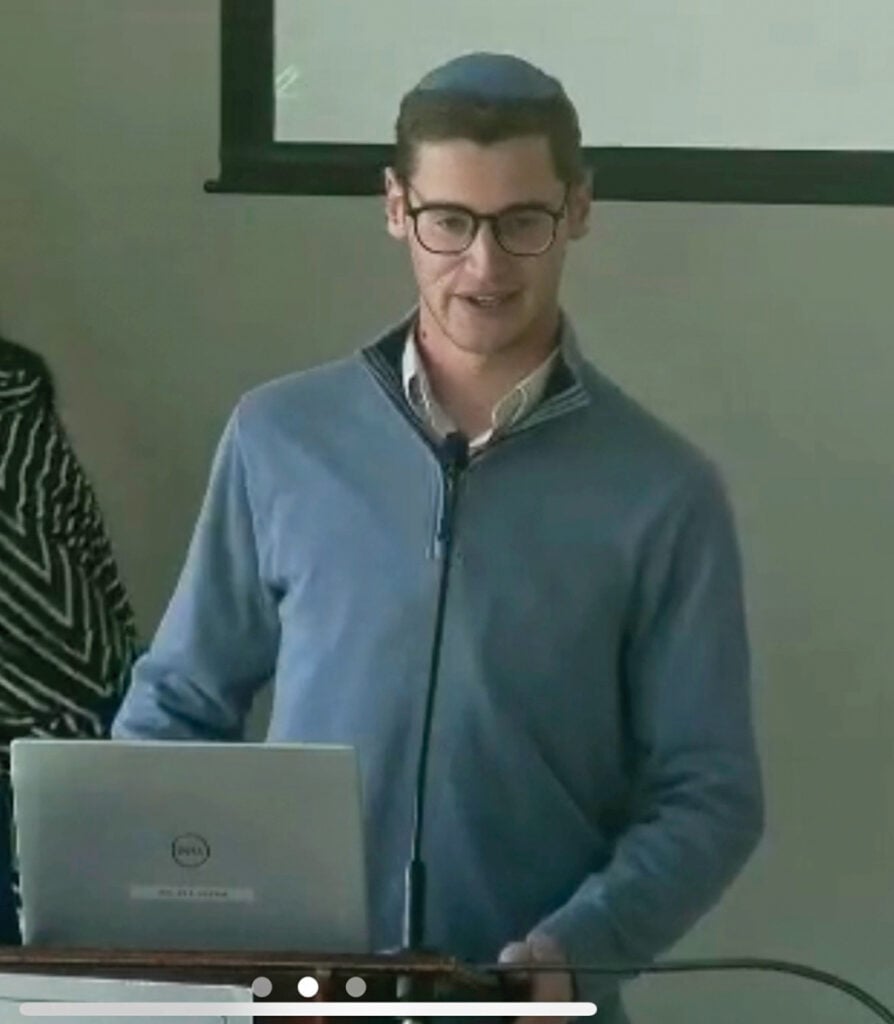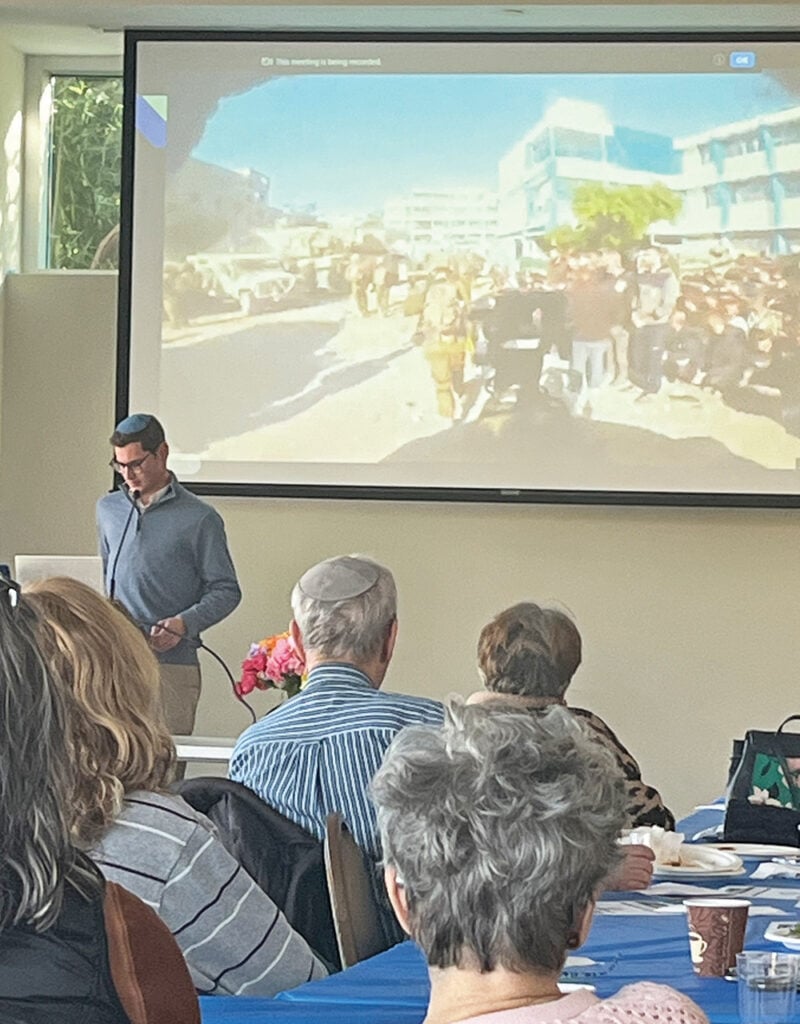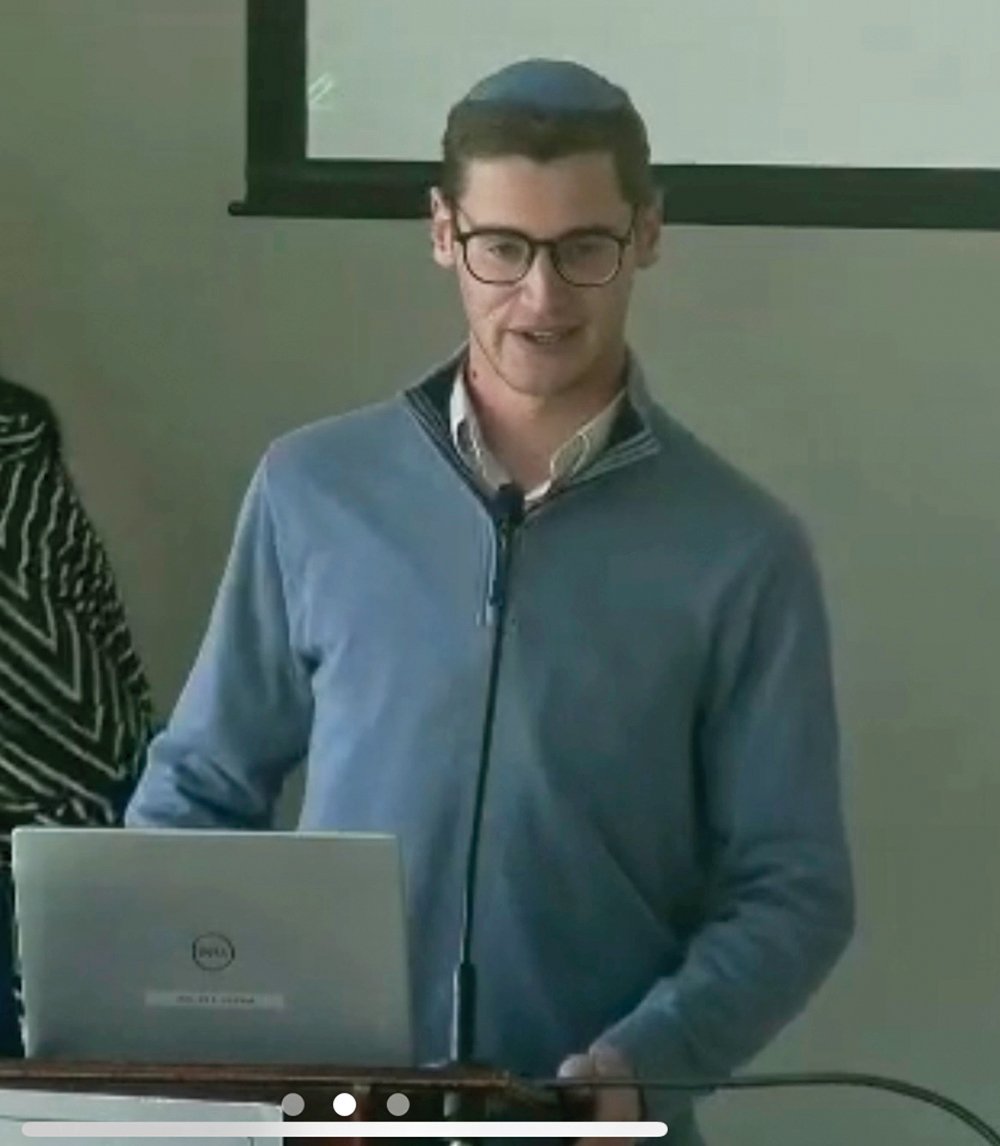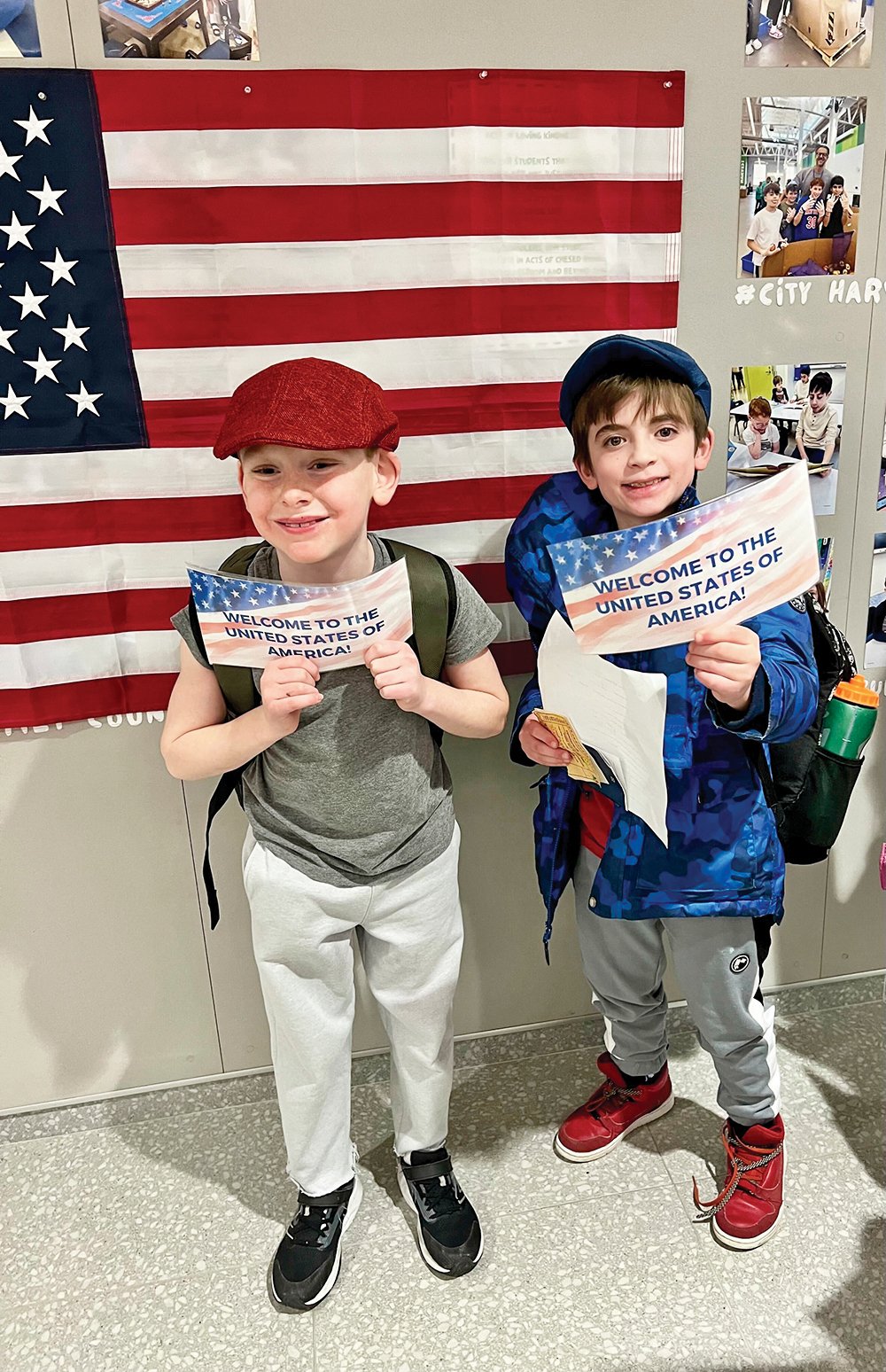
On January 8, Young Israel of New Rochelle’s Ruach program proudly welcomed Elan Finkelstein, 21, a former IDF soldier raised in New Rochelle. A Westchester Day School and Yeshivat Frisch alumnus and a current Yeshivat HaKotel student, he told his story in a presentation titled “Our Generation, Our Time.”
Finkelstein enlisted in Tzahal in March 2023. After a six-month training, he was stationed in Hevron on October 5, 2023 for Shabbat of Simchat Torah. They needed extra hands for the Simchat Torah and Hakafot Shniot in Ma’arat Hamachpelah. The young soldier described his ordinary Friday night October 6 guard-duty shift of 9 p.m.-6 a.m..
“At 6 a.m., we had Simchat Torah davening with zero kavanah and went to sleep around 7:30; very normal and routine,” Finkelstein said. “We were woken up an hour later by our commanding officer, who very calmly said two sentences that changed our lives—everyone’s lives—forever: ‘War has broken out. Please come outside.’

“None of us were expecting to hear; we were still just waking up,” he continued. “He relayed that Hamas has invaded southern Israel, taken over kibbutzim, taken hostages, killed soldiers and civilians. We saw rockets over our heads shot down by the Iron Dome, in Hevron, a place that doesn’t get too many rockets. The world seemed like it was crumbling in front of our eyes, though we weren’t seeing pictures and videos circulated on social media. It was an unbelievable experience. … We’re in an army, still in training, but at the end of that training. What does this mean for us? For our unit? What is the army going to do? Are they going to invade Gaza?”
Staying in Hevron for a few weeks, Finkelstein’s unit heard every possible rumor. “We were going into Gaza. We’re not going into Gaza. I found comfort thinking about an Aish Kodesh I learned in yeshiva. The Aish Kodesh was the rabbi of the Warsaw Ghetto who didn’t survive the war. He gave many speeches to a community in despair, getting them through the ghetto and Holocaust. He said, ‘If we’re focusing on the future, we’re going to have despair. If we’re focusing on where we are now, then we’ll be OK.’”
Towards the end of October, Finkelstein’s unit was told they were going into Gaza.
“After all that uncertainty, we were brought to our base and told to get our gear ready for the ground invasion.” he shared. “People wrote words of chizuk and pasukim on their gear to look at while in battle and give a little strength. I wrote on my gun, ‘Hayinu K’cholmim.’ Dovid HaMelech talks about Jews in galut dreaming about redemption. For thousands of years, Jews didn’t have an army to defend themselves. They would get attacked by enemies, end of story.
“Now, we still get attacked by enemies, unfortunately. We saw that very well on October 7, but we also have a way to be a part of that response. To be a part of the IDF’s response is a tremendous privilege and honor. It shouldn’t be taken for granted. I knew if I looked at my gun and saw my words, it would give me chizuk. The IDF doesn’t treat the catchphrase ‘Never Again’ as a catchphrase, but as a mission statement.”
Immediately before entering Gaza, “we had this huge tekes with Birkat Cohanim. Shofar blowing was obviously very powerful. Among the hyped-up speeches, our company commander’s sticks out. We were close enough to hear artillery and explosions in Gaza. He said, ‘Tzahal began operations to return our hostages and destroy Hamas. We’re gonna tell our kids and grandkids we were part of this operation.’”
In front of his mother and grandparents who were in attendance, Finkelstein revealed that his unit was the second unit to enter Gaza, but the first on foot. “We were the main target of all Hamas rockets as we were walking in. There was no Iron Dome, no siren. The way to know a rocket is coming is hearing the rocket’s whistle. To defend yourself, you jump behind the nearest sand dune you can find.
“Obviously a very stressful experience,” he shared. “I got through it singing a song in my head—‘Gam Ki Eilech’ by Eitan Katz: Walking through the shadow of death, we don’t fear evil because you [God] are with me. With tons of training, we were ready to go in. None of that training, bravery and strength prevents rockets from landing next to you. The only prevention is Hakadosh Baruch Hu. We can’t stress because it’s totally out of our control but a very comforting feeling that carried us throughout the war.”
Asked about future plans, Finkelstein, who began his official aliyah process, responded, “I want to go into politics, hopefully, and do something with the Israel-American relationship. I always knew how important that was. You really see during war how important it is.”













